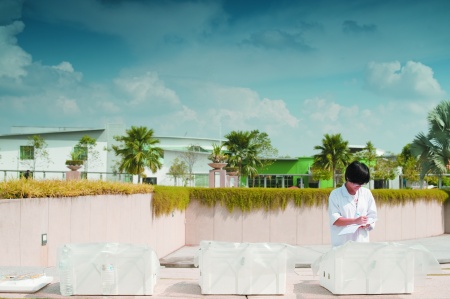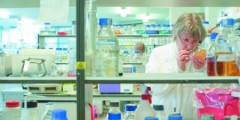brzjch
View this author's profilePosts by brzjch
Making sure food is good enough to eat
February 14, 2012
UK-Malaysia collaboration set to tackle post-harvest losses Producing enough food to feed the world’s growing population is becoming a major concern. But making sure the food we grow is safe, nutritious and good enough to eat is also fraught with difficulty. A new Centre of Excellence for Post-harvest Biotechnology (CEPB) has opened in the School …
Novel Food Technologies and Deliberative Technology
December 19, 2011
Following political debate about GM crops, regulatory bodies have adopted new approaches to engage with publics. It is unclear how these deliberative technology assessment (TA) systems will respond to emerging food technologies. Using case studies, a mixed methods approach will be applied to examine: How do key stakeholders perceive the ‘suitability’ of current TA process, …
Animals and the making of scientific knowledge
Animal research is seen as a key route to the production of scientific knowledge, but is also controversial. Using a mixed method approach, this project will ask: To what extent does legislative change and democratic consultation in the UK make animal research science public, and how are definitions of ‘science’, ‘politics’ (and ethics) reconfigured in …
Celebrating a century of Global Food Security research and training
November 29, 2011
It’s a fitting tribute to the University’s investment in Agriculture and Food related activities that it has been awarded a Queen’s Anniversary Prize for its work on Global Food Security. The first magazine produced by students studying Agriculture at Nottingham appeared in 1911 and a centenary version of ‘Agrimag’ has recently been published. Research and …
Nottingham to attend International Global Food Security Conference
September 5, 2011
Dr Paul Wilson an associate professor here at the University of Nottingham is to attend a major U21 International Conference on Global Food Security at McGill University, Montreal, Canada. The title of the conference is ‘Risks and Threats to Food Security’ and he will be presenting a paper on ‘Food Security Risks, Threats and Opportunities in an …
Mark Twain got it wrong
June 30, 2011
Mark Twain famously observed, “buy land, they’re not making it anymore”. I am not sure what he would have made of the news today from Nottingham’s Malaysian campus that that it is to co- host the first ever Crops for the Future Research Centre (CFFRC) in partnership with the Government of Malaysia. The Centre is …
“More crop per drop” needed for food security
June 7, 2011
There is a drought in the bread basket of England – East Anglia has been without significant rain for several weeks at the crucial growing stages of wheat and barley, and other combinable crops. The grain growing areas of France and Germany are also affected and there are reports that China is also suffering the …
High commodity prices and global food security – Dr John Strak
May 31, 2011
Food and commodity prices are in the news now – even making the front page of popular newspapers on regular occasions. Oxfam’s latest announcement on its expectations for crop prices makes for gloomy reading. And along with the news reporting there has been speculation about what the surge in commodity prices means for global food …
Nottingham leads the way in securing skills for the UK agri-food industry – Professor Jeremy Roberts
May 24, 2011
All bioscientists know that ATP (adenosine triphosphate) is a chemical that energizes living organisms and makes them work productively. The Biotechnology and Biological Sciences Research Council (BBSRC) are hoping that their new ATP (Advanced Training Partnership) programme will energize Universities and research institutes and make them work even more productively with industry. The scheme, announced …
Robots and fuel cells create food security on The University farm – Dr John Strak
I was given a tour of The University’s dairy unit last week – part of the University’s 400 hectare farm. Dr Stephen Ramsden, the farm’s director, showed me around and, unsurprisingly, I was shown a dairy enterprise that was at the leading edge of dairy production research. The University’s herd is usually around 200 cows …


